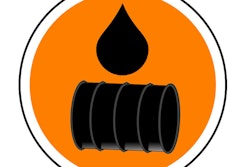Electric cars are part of a swiftly growing green energy market—some car manufacturers are even trying to convert mostly or entirely to the production of electric cars in the next 10 to 15 years. One of the most important parts of an electric car is its battery. The production of these massive batteries depends on the availability of base minerals—namely copper and other battery metals. The future of electric vehicle growth rests on our ability to mine these minerals—and we still may face mineral deficits in the next couple of decades.
What do these mineral deficits mean for the future of electric cars and what can mining companies do to help keep this industry growing?
A Lack of Vital Minerals
The metal sector faces a quandary that will continue to get worse in the coming decades. Right now, existing copper mines are producing roughly 20 million tons of product a year. Existing mines are reaching the end of their lifespans, though—the copper produced from them is a lower grade than what was mined there previously, which requires people to mine more copper ore to enable processing plants to produce usable copper for electronics and other uses.
Mines could run short by 2034. The average production is expected to drop below 12 million tons by that date and will result in an overall copper shortage across multiple industries. There is also the risk of rock failures or falls in mines that were overused.
Even using rock support measures can only go so far when the ground is mined to the point of near collapse to extract every ounce of usable metal. Clearly we need to find a balance between the two. We don’t want to put miners and innocent lives at stake.
While part of this is due to using existing mines, many of which will no longer be productive by 2035, there is also a lack of interest, and as such a lack of funding, for the establishment of new and possibly more productive mines.
Where Are These Minerals Used?
While copper presents a problem, it isn't the only vital mineral necessary for the production of electric cars. Lithium and cobalt are also used to create batteries. Lithium isn't a problem—there's plenty of it—but cobalt supplies are running thin. Samsung SDI in South Korea resorted to recycling cobalt from discarded cell phones and found ways to make mobile phone batteries with little to no cobalt included in the makeup.
Green energy alternatives such as solar also require the use of other rare metals—including gallium and indium—to work successfully.
Solutions for a Demanding Economy
What can mining companies, and the general public, do to ensure that these minerals are available to fuel a green economy in the future?
Europe has the right idea, taking steps to move toward a circular economy. While you can’t recycle or repurpose all waste, things such as plastics, paper and metals are recyclable. You can even recycle car batteries, once they have reached the end of their lifespan, to reclaim the majority of the lithium and cobalt used in their production.
Currently, recycling for lithium is only about one percent. Most lithium batteries, from things such as smartphones and electric toothbrushes, end up in a landfill—roughly $2 billion worth of lithium was thrown away in 2015.
Right now, recycling lithium isn't easy—most companies use their own proprietary formulas to create their lithium batteries, making it hard to standardize a recycling program, though some companies claim they reclaim up to 90 percent of the metals used in battery production, which includes lithium, graphite, cobalt and copper.
Even electric car giants are getting into the recycling game. Tesla's Gigafactory in Nevada doesn't just produce electric car batteries—it will also have facilities to eventually recycle the massive number of batteries that it pumps out every year.
Successful and Sustainable Mine Production
New mines and comprehensive metal recycling programs can both help offset the oncoming metal shortage that we will face in the next couple of decades if we continue to use and discard electronic devices without recycling them.
Focusing on successful and sustainable mine production may even enable companies to start mining higher-quality copper and other battery metals, reducing mine waste overall. Sustainability might seem like a green energy buzzword, but it is one word that will keep our electric car market moving forward for years to come.
(Sources: T.M. International, LLC; Mining.com; Financial Times)























